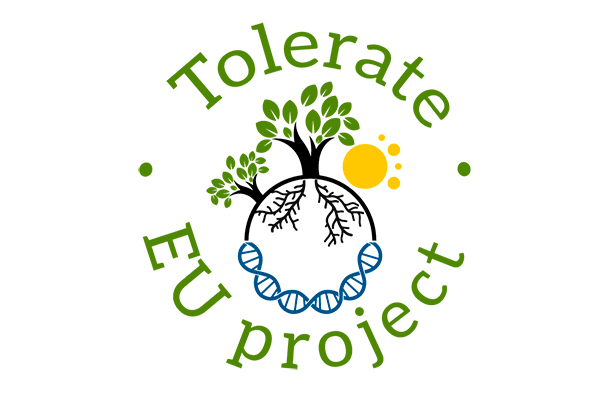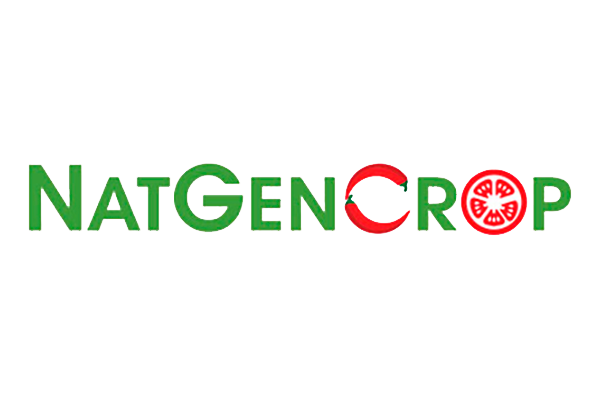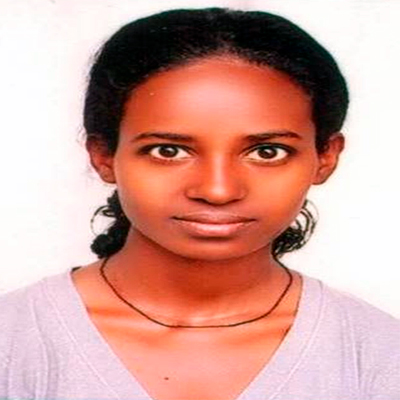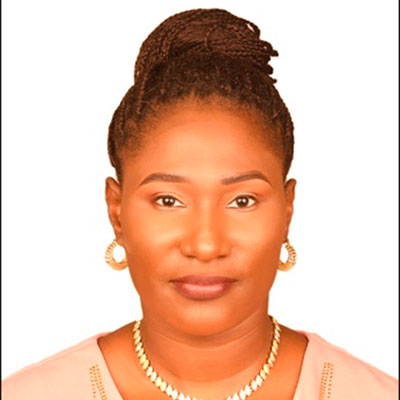COLLABORATIONS
BOOSTER aims to establish connections with projects and individuals engaged in research on drought tolerance in maize and teff, in order to promote awareness and potential application of BOOSTER’s work, while also gaining insights into the methods employed by other projects and experts.
We are pleased to present you with the current knowledge exchange collaborations established between BOOSTER and other projects and experts.
PROJECTS

HelEx
Use of extremophile Helianthus species to mitigate climate change impact on feedstock and ecosystem services provided by sunflower
HelEx aims to produce knowledge and tools to accelerate the breeding of sunflower varieties adapted to extreme drought and heat stresses and evaluate their environmental impact and economic outputs.
Grant agreement ID: 101081974

TOLERATE
Adaptation to climate change in the rhizosphere across the millennia
TOLERATE studies ancient Arctic soil and sediment samples to analyze NaDNA, aiming to understand how root (rhizosphere) zone biodiversity has responded to climate changes and extreme events over millions of years.
Grant agreement ID: 101082049

NatGenCrop
Employing the natural genetic variation to improve nutritional properties and stress tolerance in vegetable crops
The NatGenCrop project enhances the resilience and productivity of key vegetable crops such as tomatoes, peppers, and lettuce by using genomics and phenotyping approaches to identify genes and traits linked to stress tolerance, yield, and fruit quality under abiotic stress conditions.
Grant agreement ID: 101087091

SorghEau
Characterization of drought tolerance related mechanistic traits in sorghum related to water transport
The SorghEau project advances knowledge of drought tolerance in sorghum by analysing vascular anatomy, genetic mechanisms, and molecular pathways linked to water use and adaptive plasticity, supporting breeding efforts and training in advanced phenotyping and genomics.
Grant agreement ID: 101150500

BarleyMicroBreed
Strategies for breeding climate change resilient barley, genetically equipped to optimized root-microbiome interactions
The BarleyMicroBreed project investigates how barley genome components shape root microbiome composition and drought-resilient root traits through field-based genome–microbiome–phenotype correlations, gene-editing validation, and breeding implementation, positioning the root microbiome as an extended root phenotype within the plant–microbe holobiont to develop breeding strategies that harness beneficial plant–microbiome interactions.
Grant agreement ID: 101060057

LEG4DEV
Legume-based agroecological intensification of maize and cassava cropping systems in Sub-Saharan Africa for water-food-energy nexus sustainability, nutritional security & livelihood resilience
The LEG4DEV project promotes the large-scale adoption of legume-based agroecological intensification in smallholder maize and cassava systems across Sub-Saharan Africa to enhance climate-resilient productivity, water-use efficiency, and food and nutrition security while transforming rural bioeconomies through legume-derived enterprises that create sustainable livelihoods, particularly for women and youth.
Grant agreement ID: N/A

UNTWIST
Uncover and promote tolerance to temperature and water stress in Camelina sativa
The UNTWIST project investigates the climate resilience of Camelina sativa by uncovering its multi-layered stress response mechanisms to drought and temperature, using diverse cultivars in field and controlled conditions to develop genome-scale models, molecular markers, and crop improvement tools that can be translated to other species and applied in climate-resilient farming systems.
Grant agreement ID: 862524
EXPERTS
Country
Ethiopia
INSTITUTION
Ethiopian Agricultural Transformation Institute
POSITION
Project officer
Crop
Teff and Sorgum
Dr. Mizan Tesfay Abraha
Mizan joined Tigray Agricultural Research Institute (TARI) since 2007, as crop research officer. She completed her MSc and PhD studies in 2010 and 2017, respectively and continued to work as a crop researcher at TARI. She specialized in the field of plant breeding and has been responsible in identifying the tef and wheat crops production problems, developing and implementing research projects for developing user demanded improved tef and wheat varieties in Ethiopia, data collection and management and report writing. During her stay at the institute she has involved in identifying and delivering improved tef varieties namely Quncho, Kora and Bosset and bread wheat varieties named as Mekelle-01, Mekelle-02, Mekelle-03 and Mekelle-04 etc , which have widely adopted by farmers in the Tigray region, Ethiopia and contributed in improving tef and wheat productivity.
Since April 2023, she joined the Ethiopian Agricultural Transformation Institute (ATI), as project officer of the Institutional support for the seed system in Ethiopia (ISSSE) project, which is addressing systematic bottlenecks in the early generation seed production and marketing, seed quality assurance and policy, legislatives and regulations
- Abraha, M.T., H. Shimelis, T. Solomon and A. Hailu. 2019. Genotype-by-environment interaction and selection of elite wheat genotypes under variable rainfall conditions in northern Ethiopia. Journal of Crop Improvement. https://doi.org/10.1080/15427528.2019.1662531.
- Abraha, M.T., H. Shimelis, M. Laing, and K. Assefa. 2018. Gene action ccontrolling yield and yield-related traits among tef [Eragrostis tef (Zucc.) Trotter] populations under drought-stressed and non-stressed c Plant Breed. 00:1–13. https://doi.org/10.1111/pbr.12606
- Abraha, M.T., H. Shimelis, M. Laing, and K. Assefa. 2017. Early generation genetic variation and heritability of yield and related traits among tef populations. Journal of Crop Science and Biotechnology. https://doi.org/10.1007/s12892-017-0087-0
- Abraha, M.T., H. Shimelis, M. Laing, and K. Assefa. 2016. Selection of drought-tolerant tef (Eragrostis tef) genotypes using drought tolerance indices. South African Journal of Plant and Soil 2017: 1–10. DOI: 10.1080/02571862.2017.1300696.
- Abraha, M.T., H. Shimelis, M. Laing, and K. Assefa. 2016. Genetic variation and trait association of tef [Eragrostis tef (Zucc.) Trotter] evaluated under optimal and moisture stressed environments. Australian Journal of Crop Science. 241-247. doi: 10.21475/ajcs.17.11.03.pne69
- Abraha, M.T., H. Shimelis, M. Laing, and K. Assefa. 2016. Diagnostic assessment of the production status, constraints and farmer-preferred traits of tef [Eragrostis Tef (Zucc.) Trotter] under drought-prone environments. Transylvanian Review 24:926-939.
- Abraha, MT., H. Shimelis, M. Laing and K. Assefa. 2016. Achievements and gaps in tef productivity improvement practices in the marginal areas of Northern Ethiopia: implications for future research directions. International Journal of Agricultural Sustainability. DOI:10.1080/14735903.2016.1173990
- Abraha, MT., H. Shimelis, M. Laing, and K. Assefa. 2016. Performance of tef [Eragrostis tef (Zucc.) Trotter] genotypes for yield and yield components under drought-stressed and non-stressed conditions. Crop Science.DOI: 10.2135/cropsci2015.07.0449
- Abraha, M.T., Shimelis, M. Laing, K. Assefa andB. Amelework. 2016. Assessment of the genetic relationship of tef (Eragrostis tef) genotypes using SSR markers. South African Journal of Botany. DOI:10.1016/j.sajb.2015.12.009.
- Abraha, M.T., S. Hussein, M. Laing and K. Assefa. 2015. Genetic management of drought in tef: Current status and future research directions. Global Journal of Crop, Soil Science and Plant Breeding. 3: 156-161.
- Mehari, M., M. Tesfay, H. Yirga, A. Mesele, T. Abebe, A. Workineh and B. Amare. GGE biplot analysis of genotype-by-environment interaction and grain yield stability of bread wheat genotypes in South Tigray, Ethiopia. Communications in Biometry and Crop Science. 10:17–26.
- Mehari, M., S. Alamerew, B. Lakew, H. Yirga and M. Tesfay. 2014. Parametric stability analysis of malt barley genotypes for grain yield in Tigray, Ethiopia. World Journal of Agricultural Sciences. 10: 210-215.
Country
Nigeria
INSTITUTION
Ladoke Akintola University of Technology
POSITION
Senior Lecturer
Crop
Maize
Dr. Adesike Oladoyin Kolawole
Adesike Oladoyin Kolawole, an esteemed academic at Ladoke Akintola University of Technology, is dedicated to teaching and research in crop production and soil science. With degrees in Agronomy and Plant Breeding, she offers courses and supervises student projects in various fields. Adesike also serves as the examination results officer, oversees farm teaching, and conducts research in maize breeding. As a maize breeder, she focuses on maize improvement and the deployment of conventional maize hybrids tailored to the needs of resource-limited farmers in the Derived Savanna Agro-ecology of Nigeria. She’s affiliated with prestigious associations, including the African Plant Breeders Association.
Adesike will contribute her expertise in maize breeding and genetics. She will actively participate in the design and implementation of breeding programs, leveraging her knowledge to select desirable traits for drought tolerance in maize. Additionally, She will collaborate closely with other researchers and institutions, sharing data, resources, and insights to accelerate progress towards our shared goal. Through this collaborative effort, Adesike aims to make significant contributions food security in drought-prone regions.
- Adebayo, M. A., Kolawole, A. O., Raji, I. and Ajayi, J. (2017). Agronomic evaluation of testcrosses of drought-tolerant maize (Zea mays L.) inbred lines using different selection index methods. Archives of Agronomy and Soil Science 63(9):1292-1300. www.tandfonline.com/toc/gags20/current IF = 0.60 (SJR). UNITED KINGDOM.
- Kolawole, A. O., Menkir, A., Gedil, M., Blay, E., Ofori, K. and Kling, J. G. (2017). Genetic divergence in two tropical maize composites after four cycles of reciprocal recurrent selection. Plant Breeding 136(1):41-49. www.onlinelibrary.wiley.com/journal/14390523 IF = 0.51 (SJR). UNITED KINGDOM.
- Adebayo, M. A., Menkir, A., Hearne, S. and Kolawole, A. O. (2017). Gene action controlling normalized difference vegetation index in crosses of elite maize (Zea mays L.) inbred lines. Cereal Research Communications 45(4):675-686. www.springer.com/journal/42976 IF = 0.34 (SJR). HUNGARY.
- Kolawole, A. O., Menkir, A., Blay, E., Ofori, K. and Kling, J. G. (2018). Genetic advance in grain yield and other traits in two tropical maize composites developed via reciprocal recurrent selection. Crop Science 58(6):2360-2369. www.acsess.onlinelibrary.wiley.com/journal/14350653 IF = 0.65 (SJR). UNITED STATES.
- Kolawole, A. O., Menkir, A., Blay, E., Ofori, K. and Kling, J. G. (2019). Changes in heterosis of maize (Zea mays L.) varietal cross hybrids after four cycles of reciprocal recurrent selection. Cereal Research Communications 47(1):145-156. www.springer.com/journal/42976 IF = 0.34 (SJR). HUNGARY.
- Afolayan, G., Deshpande, S. P., Aladele, S. E., Kolawole, A. O., Angarawai, I., Nwosu, D. J., Michael, C., Blay, E.T. and Danquah, E.Y. (2019). Genetic diversity assessment of sorghum (Sorghum bicolor (L.) Moench) accessions using single nucleotide polymorphism markers. Plant Genetic Resources: Characterization and Utilization 17(5):412-420.
www.cambridge.org/core/journals/plant-genetic-resources IF = 0.32 (SJR). UNITED KINGDOM. - Afolayan G., Aladele, S. E., Deshpande, S. P., Kolawole, A. O., Nwosu, D. J., Michael, C., Blay, E. T. and Danquah, E. Y. (2020). Genetic variation for Striga hermonthica resistance and yield among sorghum accessions in Nigeria. Journal of Agricultural Science 12(7):192-202. www.ccsenet.org/journal/index.php/jas IF = 67 (H-index). CANADA.
- Ibitoye, D. O., Kolawole, A. O. and Feyisola, R. T. (2020). Assessment of wild tomato accessions for fruit yield, physicochemical and nutritional properties under a rain forest agro-ecology. Genetic Resources 1(2):1-11. www.genresj.org ITALY.
- Abebe, A. T., Kolawole, A. O., Unachukwu, N., Chigeza, G., Tefera, H. and Gedil, M. (2021). Assessment of diversity in tropical soybean (Glycine max (L.) Merr.) varieties and elite breeding lines using single nucleotide polymorphism markers. Plant Genetic Resources: Characterization and Utilization 19(1):20-28. www.cambridge.org/core/journals/plant-genetic-resources IF = 0.32 (SJR). UNITED KINGDOM.
- Kolawole, A. O., Raji, I. A. and Oyekale, S. A. (2021). The performance of new early maturing pro-vitamin A maize (Zea mays L.) hybrids in the derived Savanna agro-ecology of Nigeria. Journal of Agricultural Sciences (Belgrade) 66(3):231-245. www.joas.agrif.bg.ac.rs IF = 0.14 (SJR). SERBIA.
Country
Uganda
INSTITUTION
National Agricultural Research Organisation (NARO)
POSITION
Principal Research Officer/Maize Breeder
Crop
Maize
Dr. Frank Kagoda
Frank is a Ugandan crop scientist presently working for the National Agricultural Research Organization as a maize breeder. He holds a PhD in Plant Breeding from the University of KwaZulu Natal, South Africa; MSc. in Agronomy and a BSc. Agric. from Makerere University Uganda. Frank has a productive work experience of now 20 years in research and development activities. He commands a robust experience in consulting with several international organizations such as Lutheran World Federation (LWF), International Institute of Tropical Agriculture (IITA), World Vision, International Fertilizer Development Centre (IFDC), International Seed Sector Development (ISSD), CARITAs and PELUM.
He has trained over 10,000 young people in his career as an agriculturalist at different forums. His expertise includes among others, skills in proposal writing, data analysis and manuscript development, conducting editorial reviews, theses examination, conducting both controlled and survey experiments, program management and administration, project monitoring and evaluation, coordinating and evaluating agricultural projects. Outside his official duties, Frank is a coffee nursery operator and trainer, and for the last 10 years, he has enabled over 50 households in eastern Uganda to acquire knowledge and skills in coffee, and seedlings for field establishment. He also breeds chicken for individual farmers and organisations in addition to extending training in poultry management.
Frank will conduct maize breeding and evaluation trials across locations in partnership with Booster. He will be a mouth piece for Booster in Uganda and beyond, especially in promoting Booster’s technologies. He also expects to share a lot of germplasm for drought tolerance and other traits with Booster, also scientific information.
- Kutuka, J.K., Tusiime, G., Kagoda, F., Gibson, P., Edema, R., 2024. Combining ability for resistance to Turcicum leaf Blight in maize under highlands of Uganda. African Journal of Plant Breeding. 11(2): 001-009.
- Epaku, G.T., Rubaihayo, P., Chapu,I., Kagoda, F., Bomet, D.K. 2022. Inheritance of stay green physiological determinants in drought tolerant maize inbred lines. Journal of Plant Breeding and Crop Science. 14(2): 38-46. DOI: 10.5897/JPBCS2021.0960.
- Epaku, G.T., Rubaihayo, P., Kagoda, F., Bomet, D.K., Badji, A., Chapu, I., and Ogwal, G. 2021. Stay green physiological capacity of drought tolerant maize inbred lines. African Crop Science Journal, 29(2): 309-323. DOI: 10.4314/acsj.v29i2.9.
- Kagoda, F., Amunaun, P. Mufumbiro, E. Basena and S. Kabiri. 2020. Status of the fall armyworm [Spodoptera frugiperda (J.E. Smith)] infestation on maize one year after detection in eastern Uganda. International Journal of Agric. and Biological Sci. 4(4): 54-64. DOI: 10.5281/zenodo.4040950.
- Kagoda, F., Kwemoi, B.K., Owere, L., Ochwo-Ssemakula, M. Asea, G. 2019. Development and Release of Two Mid-Late Maturing Maize Hybrids for the Highland Agro-Ecologies of Uganda. Journal of Plant Breeding and Genetics, 7(3): 115-124. DOI: 33687/pbg.007.03.2974.
- Kayaga, H.N., Kagoda, F., Ochwo-Ssemakula, M., Alladassi, B.M.E., Asea, G., Gibson, G., Edema, R.2017. Inheritance of yield and yield related traits in highland maize hybrids of Uganda.Journal of Crop Science and Biotechnology. 20 (4) : 255 – 262. DOI: 10.1007/s12892-017-0110-0.
- Kayaga, H.N., Kagoda, F., Ochwo-Ssemakula, M, Asea, G, Edema, R, Gibson, R, Alladassi, E.M.B. 2017. Genotype by environment interaction effect on grain yield of highland maize (Zea mays L.) hybrids. Maydica Electronic Publication, Maydica, 62.
- Kagoda, F. Gidoi, R. and Isabirye E. B. 2016. Status of maize lethal necrosis in eastern Uganda. African Journal of Agricultural Research. 11(8): 652-660. DOI: 10.5897/AJAR2015.10616.
- Kagoda F., Hearne, S. Adewuyi, O. and Coyne, D.L. 2015. Response of drought tolerant maize inbreds to water stress under nematode infested conditions. Euphytica, DOI 10.1007/s10681-015-1474-4.
- Kaiira, M., Kagoda, F. and Gidoi, R. 2015. Exploring cost-effective maize integrated weed management approaches under intensive farming systems. UJAS, 15 (2):191-198.



